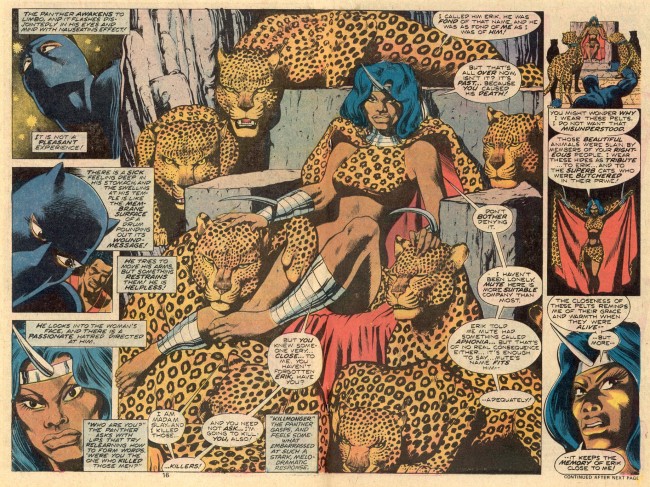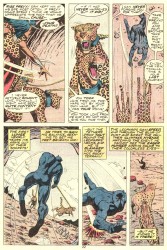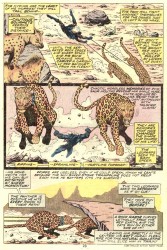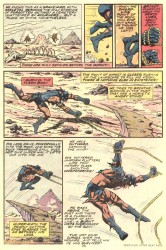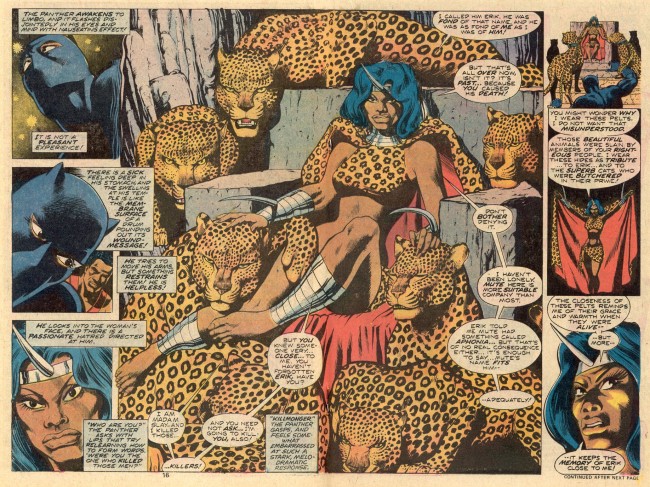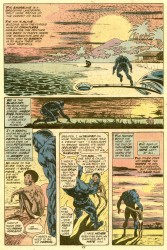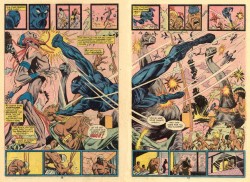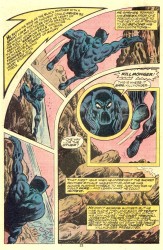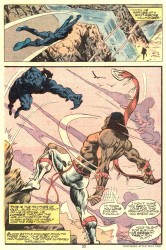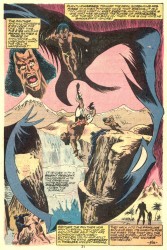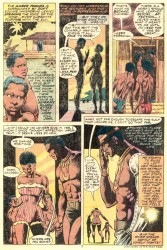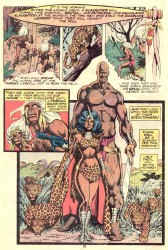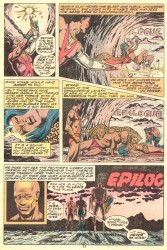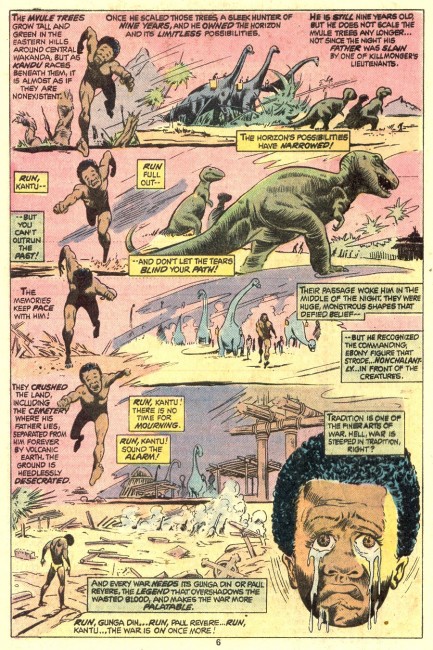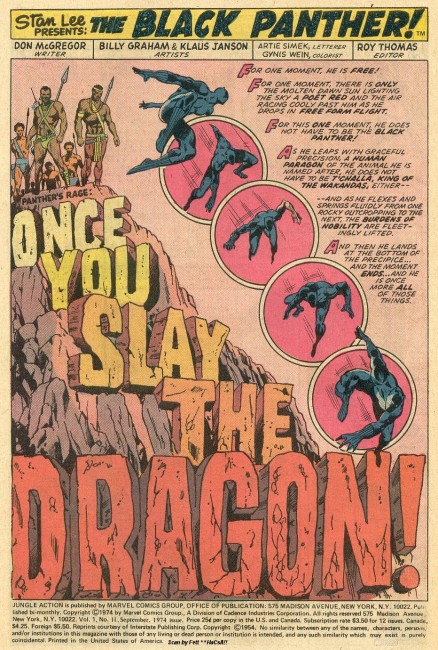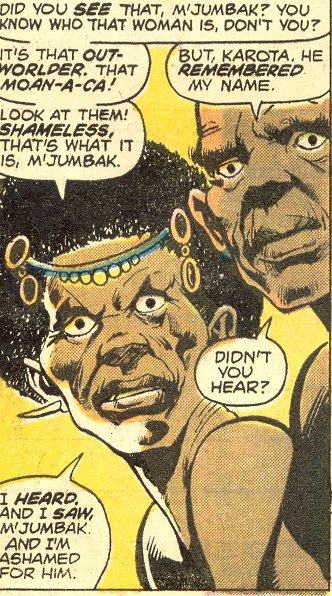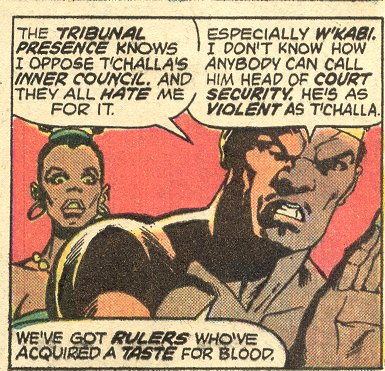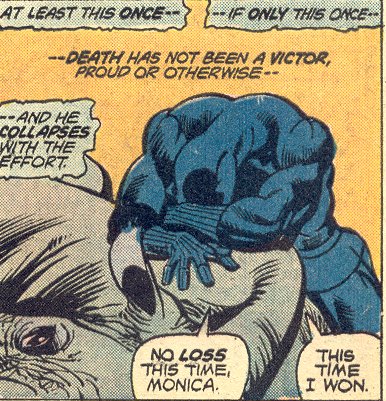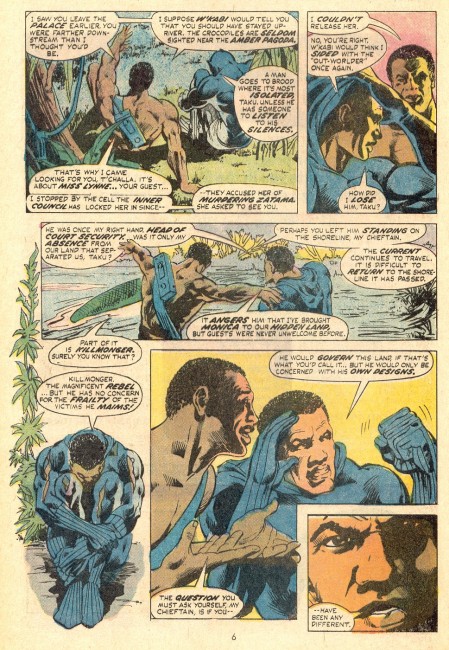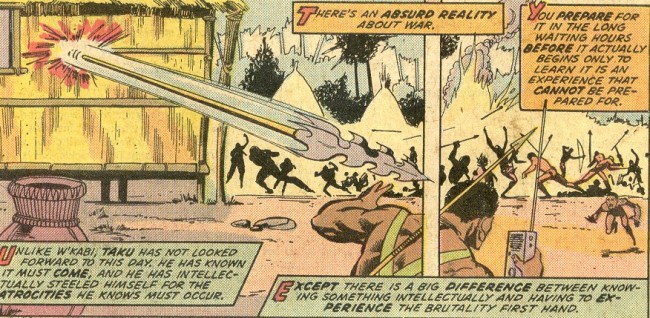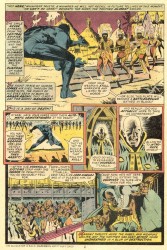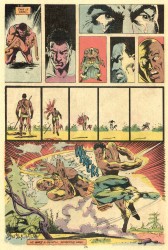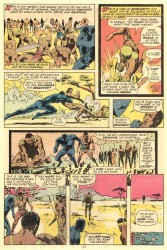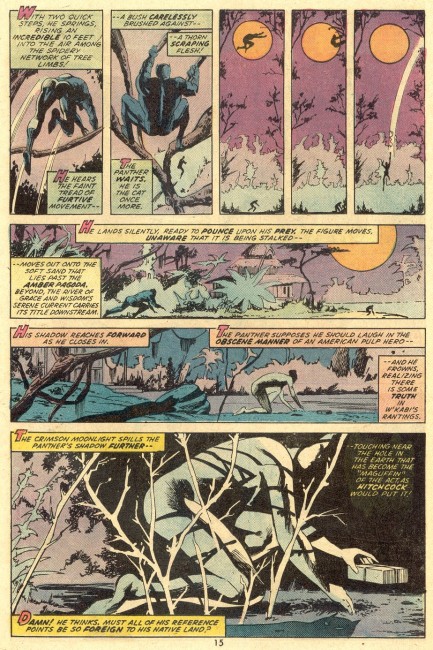
Luke Cage: “And if I’m fake, I ain’t notice, ’cause my money ain’t!”
August 22nd, 2012 Posted by david brothersI wrote a thing for ComicsAlliance about Steve Ditko, Stan Lee, and John Romita’s take on Spider-Man. It’s the most amazing piece of writing about comics you’ll ever see in your entire life, even if you live to be two hundred years old. It’s life-affirming and revitalizing. It’s incredible. It’ll make your teeth whiter and clear up your skin. Here’s an excerpt that I’m going to use to spring off into few more thoughts. Prepare yourself — I don’t want you to get hurt when you fall out of your chair in amazement after reading this.
But it makes sense. I figure somewhere around 50% of you out there remember being a teenaged boy. Do you remember that thirst for being seen as a man? Being seen as self-sufficient, cool, and intelligent? Showing the world that the you inside your shell was just as cool as the coolest guy in school, if not cooler? That’s where Spider-Man begins, from that position of deep longing and thirst. He wants to be seen a certain way.
You can see it in how Spider-Man behaves. Keep in mind that Peter Parker was a teenager when he became a hero. He doesn’t know how to be a man. He simply hasn’t had the experience yet. But, he suits up anyway, and he pointedly takes the name Spider-Man, which is a statement in and of itself. And how does Peter Parker, 15-year-old boy, act when he pulls on the red’n’blues?
He acts like a hero. He doesn’t show fear, not usually. He treats his villains, a surprising number of which are double or triple his age, like peers. He condescends to them. He quips. He acts like a man. And he saves the day. He’s acting like a hero, he’s emulating his heroes. He’s pretending, back in those early days. He’s not Spider-Man yet. Spider-Man isn’t the true Peter Parker. It’s just a face he wears sometimes.
I really dig this aspect of Spider-Man’s origin, the idea of superhero as performance. It reminds me of masculinity as performance, and of how rappers amp up what’s perceived as real in an attempt to keep it real. But it also reminds me of my other favorite Marvel dude who started out pretending to be a hero, Mister Carl “Welcome to Harlem, where you welcome to problems” Lucas, better known as Luke “I get the boosters boosting, I get computers puting” Cage. Here’s his superhero origin:
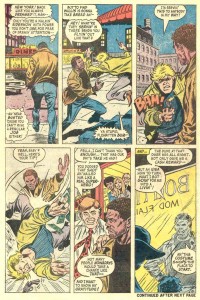
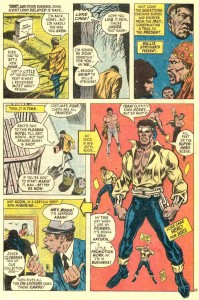
The stuff about Spidey playing a role is an implication, something I can read into the text fifty years later. I have no idea if it’s Lee & Ditko’s intended reading or not, but it works out shockingly well thematically and mechanically. But with Cage, well, the acting is explicit. “Yeah! Outfit’s kinda hokey… but so what? All part of the superhero scene. And this way when I use my powers, it’s gonna seem natural.”
I love that Cage only ever put on a costume because it’d let him do what he needed to do, not because he wanted to be a cape. Cage became a superhero not because it was the right thing to do, but because it’d let him live his life how he wanted to. It’d let him get revenge on William Stryker and use his powers in public. Doing good wasn’t an afterthought, but it definitely wasn’t the first thing on his mind. He needed a way to fit in first, right? So he appropriates superhero iconography to buy legitimacy and freedom.
It reminds me of a couple other things: code-switching and protective reactions to racism. Code-switching is maybe easiest described as the difference between how you talk to your friends and how you talk to your parents. Or you can just read this bit from Dave Chappelle’s episode of Inside the Actor’s Studio, which I edited from a transcript of the episode:
Lipton: Now don’t make fun of me– that when you play white dudes, your speech is pitch perfect, which led me to realize that either one of you could, if you wished, speak that way all the time. In other words, is it a matter of choice?
Chappelle: Every black american is bilingual, all of ’em. We speak street vernacular, and we speak job interview. There’s a certain way I gotta speak to have access.
I had a conversation with someone the other day about baby names. I was trying to figure out a nickname for a certain name, and I tossed one out there. She said that sounds “a little hood.” Her logic was that “hood names allows people to perform preconceived ideas.” I rejected that idea on the basis of the fact that people will form preconceived ideas about you even if your name is John Smith if you don’t look a certain way, so why not make your own way from top to bottom?
I tend to think of code-switching as a negative, a way to fit into a society that doesn’t like you. What’s cool about this Cage origin is that it uses code-switching not just as a way to fit in, but to get over. Cage knows that he’s behind the eight ball in more ways than one. He’s a fugitive from the law, but there were also only so many opportunities for black dudes of a certain type.
So what’s a fella with newly-hardened brown skin to do? The only thing you can do: you find some way around the rules. If you can’t use your powers in plain clothes or get a straight job, then you do something that lets you do that. In the Marvel Universe, you throw on a costume and you come up with a gimmick. You find something that’ll let you get by. More generally, or maybe more specifically from a black American point of view, you find something that’ll let you get by in a white man’s world. (Crack rock, wicked jump shots, telling jokes, putting on a dress and making million-dollar comedies, rapping, underground railroad, enlisting, whatever.) You do what you have to do.
I like this aspect of Cage, though I can’t remember if it was ever tackled explicitly after this scene. But I always liked the idea that Cage just kinda fell into superheroing, instead of setting out to become the next Captain America or Black Power Man. It lends a certain flavor to Cage that isn’t there for a Spider-Man or Captain America, an edginess and realness that I can appreciate and recognize. It feels like a real life phenomenon heightened and translated for a superhero audience.
It’s cool to look at this and then check out Cage these days, where he’s almost completely eschewed the visual trappings of superherohood and just does his job like he wants to. Cage reached the point where he doesn’t have to act a certain way to get access or dance for his dinner. He can just do what he wants, when he wants, and his stature is large enough that nobody can hold him back.
I said years ago that Luke Cage is the American Dream. Still true.

